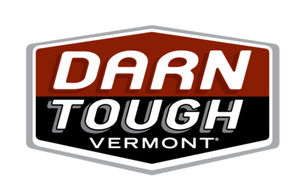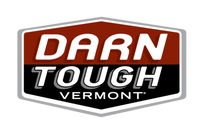Vermont Farmers Are Darn Tough
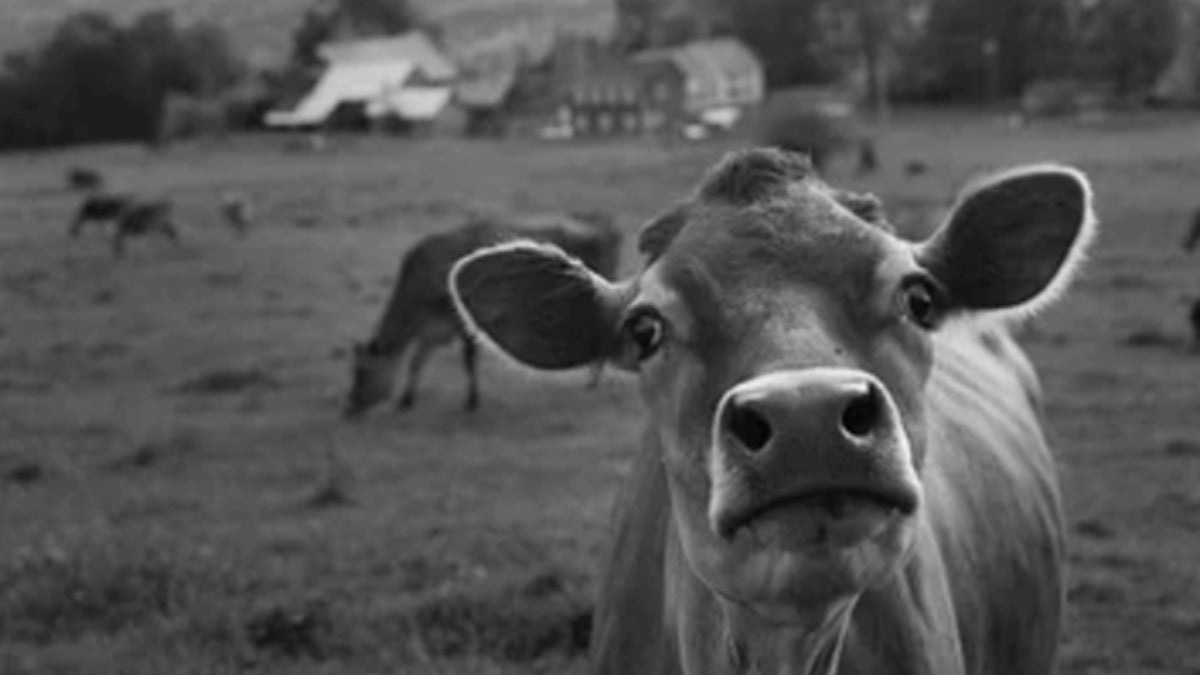
Here at Darn Tough Vermont, we are big animal lovers, as you can probably gather from our collection of Animal Socks. And if you’ve spent any time in Vermont, you probably noticed the farms everywhere.
Whether it’s getting stuck behind a tractor, seeing the beautiful red barns tucked into the green mountains, or the weekly farmer’s markets, it's hard to deny how farms have influenced Vermont culture. In our neck of the woods, if you don’t own a farm, chances are you know someone who does.
Vermont is especially known for its dairy (milk, cheese, and ice cream) and maple, but the list of things farmed here goes on. We asked Darn Tough families to share about their farms, and how those experiences shaped them.
Vermont Supports Vermonters
We as Vermonters prioritize community and supporting small businesses. This is especially true when it comes to food and supporting farms or other Vermont-made items.
Farming is a large part of Vermont’s economy and culture. Every weekend in the warmer months, there are farmers markets where people buy and sell fresh food, pastries, and homemade works of art.
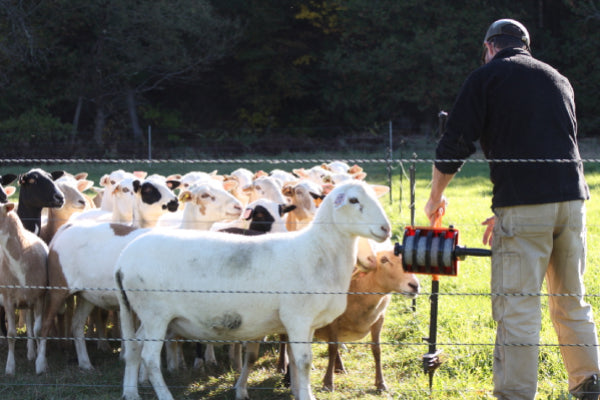
Another interesting way that people support small farms in Vermont is through CSAs (Community Supported Agriculture). These are farms that allow people to pay for a monthly “share” of a farm. Each month you pay for a share, and you receive a batch of fresh groceries. There are CSAs for all different types of farms, from fresh vegetables, to bread, and even CSAs for pizza ingredients!
We spoke to Dr. Joshua Faulkner, a Research Professor at the University of Vermont (UVM) and a Director of one of the Agriculture testing labs for UVM’s Extension Center for Sustainable Agriculture about the importance of supporting local agriculture.
“When we support our local farms, we keep our food dollars local,” explains Dr. Faulkner. “Those dollars then stay in the community, supporting farmers and farmworkers and all the other small businesses that support local agriculture and help build a thriving local economy.”
He continues, “Vermont is a leader in local food systems and continues to invest in improvement. I think what makes some of this possible is that we are [a] small state where everybody knows everybody, and maybe that makes it easier to work together to build sustainable systems."
Our Farmers
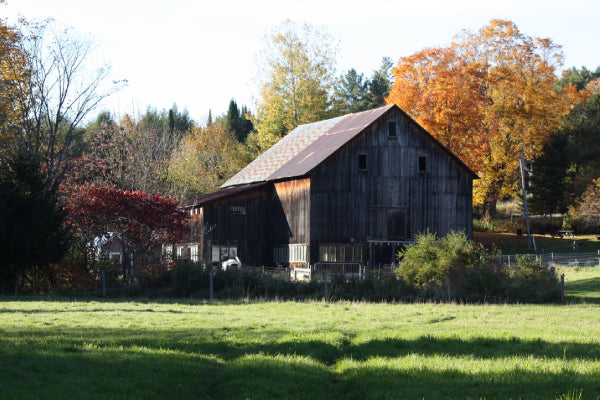
Charlie — Dairy Farm in Waterbury, VT
As a teen, our Technician Charlie worked on a family friend’s farm right here in Waterbury, VT, home to our second Mill. This farm produced milk from 1866 until it burnt down in 2018, when they began farming alpaca wool.
Olivia & Zach — Cross Farm in Barnet, VT
Olivia, our Innovation Developer, and her partner Zach have owned their own farm in Barnet VT since 2015. The house and barn are one of the oldest farms in Barnet and was originally run as a dairy farm.
When Zach started the operation, he decided to pay homage to the farm's history and named the farm after the original name, Cross Farm. On this farm live pasture-raised sheep/lamb and certified organic chicken, pork, and holiday turkeys. They also have a fabulous garden, dogs, and three barn cats.
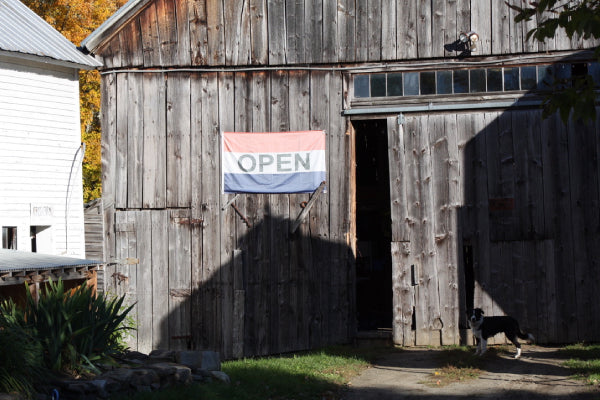
Diane, Jim, & Michael — Ware Farm in Tunbridge, VT
Diane and Jim are the family of Darn Tough employee Michael, and they live on a family farm that has been in their name since 1922. When we spoke with Diane, she emphasized that there is a lot more that goes into supplying food than people realize.
Life on a Farm
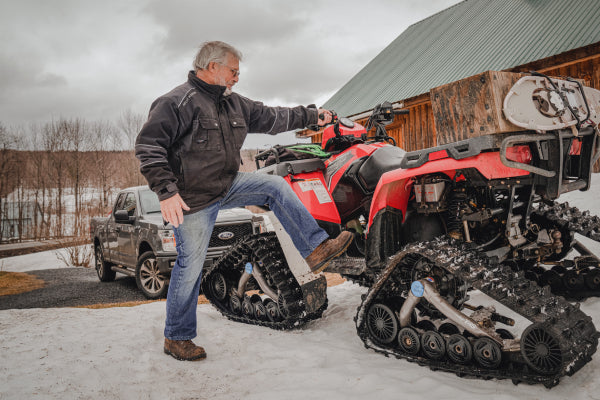
Farming is a lot of work and long hours, as many of our employees know first hand. For dairy farmers like Charlie and his family, work started before the break of day:
- Wake up at 4:30AM to feed and milk the cows, then let them out to the pasture.
- From about 9AM to 4PM, daily tasks such as haying the fields and fixing equipment.
- At 4PM the dog herds the cows in for the nightly milking.
- After milking, it was time to finish any chores that needed to be done.
- By 8PM, finally sit down for dinner.
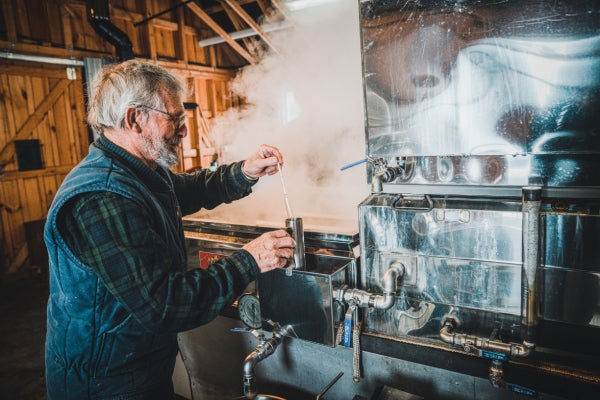
“Every day on a farm starts and ends with chores,” shares Olivia. “Walking around to every group of animals and making sure they all have food and water for the day, that nothing has happened to compromise their fence, and making sure everyone looks healthy and is moving correctly.”
A livestock farmer learns how to observe their animals throughout the day, as knowing their movements and habits helps them identify when something isn’t right. And the work doesn’t stop with animal care; the rest of the day consists of haying, repairing broken fences, mucking, and more.
“People don’t realize how much work it takes to get to the end result,” explains Diane. “The beef we raise takes two years to raise before butchering and eating; even for vegetables it takes months.”
The Good, The Bad, The Ugly
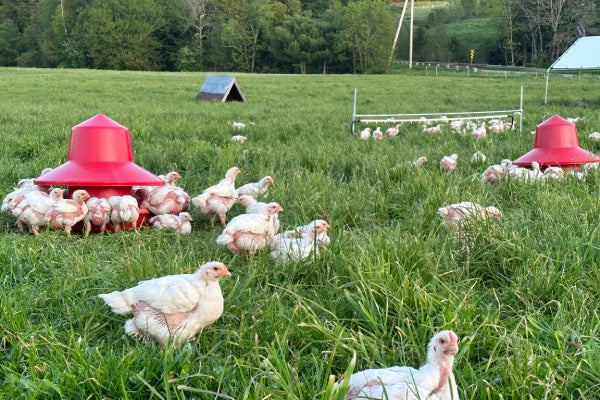
On a farm, there are good days and there are bad days. A good day is when the animals are happy and healthy. When the animals are calm, and you’re able to do your chores without any hiccups.
These days you feel the joys of working with the land and seeing it give back. In fact, Olivia's favorite moment is sitting down at the dinner table realizing that everything on her plate came from their farm or their neighbor's farm.
But just as animals can be happy and healthy and the crops can grow well, the opposite can happen for seemingly no reason. Bad weather, pests, injuries, and other uncontrollable variables can make farming extremely difficult.
“There is an illusion that farming on your land is the beautiful storybook life where you are your boss and you get to just live off the land,” says Olivia. “Sure, that’s one part of it, but it’s hard work, it never stops and it doesn’t pay.”
But as disheartening as it is to invest time, energy, and money into something then have it all seem to disappear, farming can also inspire a great deal of hope. In Olivia, it’s certainly created resilience:
“You wake up the next morning, and you start over with the hope that today will be a little easier and a little better.”
Working with Animals
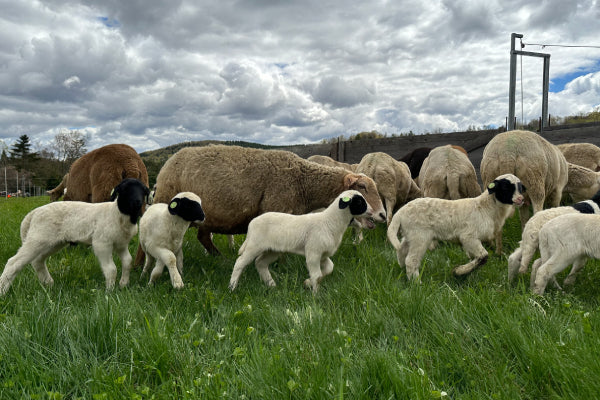
Back to our love of animals, we asked Olivia what her favorite animals on the farm are.
“If I had to choose one singular animal I would have to choose our sow Big Red," decides Olivia. "She is gigantic, but she is so friendly and calm, that our niece was able to sit on top of her and her on a real live piggyback ride. This isn’t always the case with sows so we thank her every day for her gentleness.”
But the decision isn't an easy one — Olivia enjoys how each type of animal has its own energy and is enjoyable to be around. An example? Sheep:
"The flock mentality of sheep means that they move in one motion or all do the same thing all at once," Olivia explains. "It can be relaxing to sit in the barn during chores and listen to them all chew and church their hay at the same time. Typically, our sheep are skittish of people, but we do have a couple of ewes that like to be scratched and get a cuddle.”
There “ewe” have it folks! Not only do sheep make wool, but they make great cuddlers with built-in white noise machines. Looking for a relaxing day? Just lay with a herd of sheep and listen to them live. All jokes aside, you probably shouldn’t go chasing sheep for a cuddle. Most of them wouldn’t appreciate it.
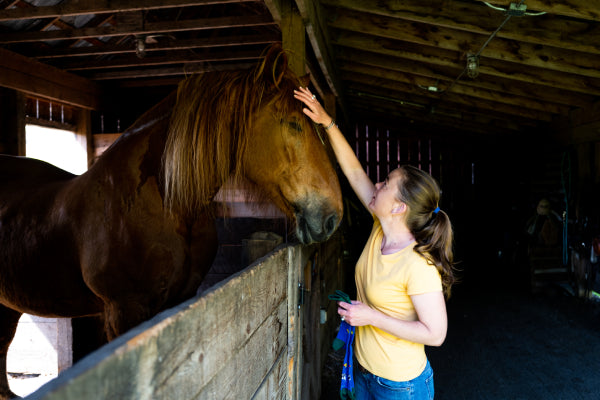
We also asked Charlie what his favorite part about working on a farm was and what his favorite animals are:
“Honestly the simple life and enjoying the animals. As well as the fresh air program where we’d have kids from the city stay for a month to learn and help out on the farm. I loved the newly born calf as well as all the stray cats that lived in our hayloft.”
It's no coincidence you'll find cows, cats, sheep, and more on our animal socks. The farms all over Vermont are an inspiration to our Product Design team, for our animal socks and many of nature socks.
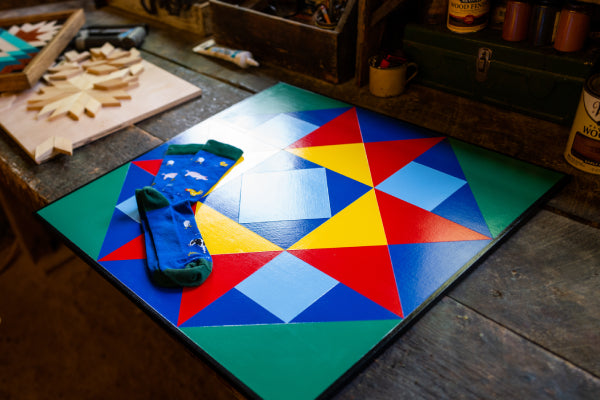
We've covered quite a few animals in our designs: chicken socks, cow socks, pig socks, dog socks, and cat socks, to name a few. We even combined multiple farm animals to make the Barnyard Crew Sock, which gives back to the Vermont Foodbank.
From the nature-side, socks like the Farmer’s Market Crew, Beets Crew, and Fruit Stand pay homage to farmer’s markets.
Grow It Yourself
When you farm for yourself, you know exactly what you’re eating. We asked each of these folks what it means to them to farm. Here’s what they had to say:
“Self sufficiency. Eating food I grew/made and knowing exactly what is in it. I’d love to get back to my roots and be a homesteader and not rely on food that is un-pure.” — Charlie H.
“I grew up with a garden, and my parents always canned their food. I think it’s important that people learn these skills and take care of themselves, rather than depending on what you can get quick. Help support the farms that stick around, it’s important to know what you’re eating. If you buy food from the grocery store you don’t really know anything about what you’re getting.” — Diane W.
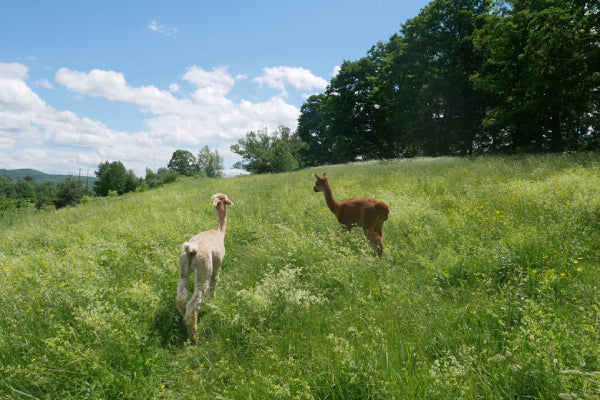
“We live in a time of instant gratification. If you want a mango in the middle of winter in Vermont, go to the grocery store. What you will never know is how much work and time it took to get that mango to Vermont. The downstream effects of having access to these products at the click of a button are so much greater than we know. — Olivia L.
If you want a taste (no pun intended) of what it’s like to grow your own plants, try it for yourself! A few plants that most anyone can grow at home include tomatoes, potatoes, lettuce, basil, and spinach. Some of these can even be grown in a window.
Vermont Culture
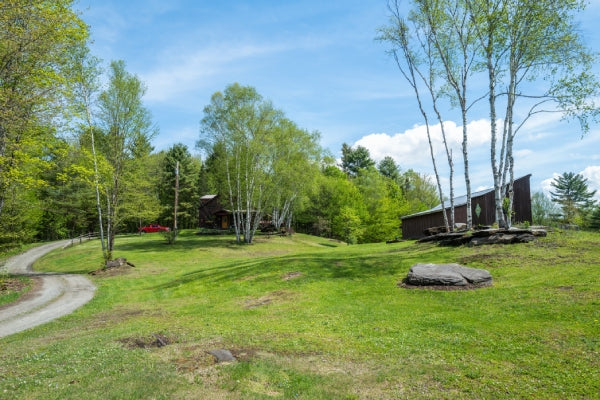
As you can see, Vermont’s farming influence is strong which is why so many of our socks are influenced by it. When you see farm animals constantly and work at a sock company near them, it’s hard NOT to make farm animal socks.
Not only has Vermont's farm culture influenced the designs on our socks, but what we stand for. Vermonters are tough. You have to be to get through the brutal winters. You can trace our tough attitude and desire to create high quality (and warm) products right back to our lifestyle here in Vermont.
